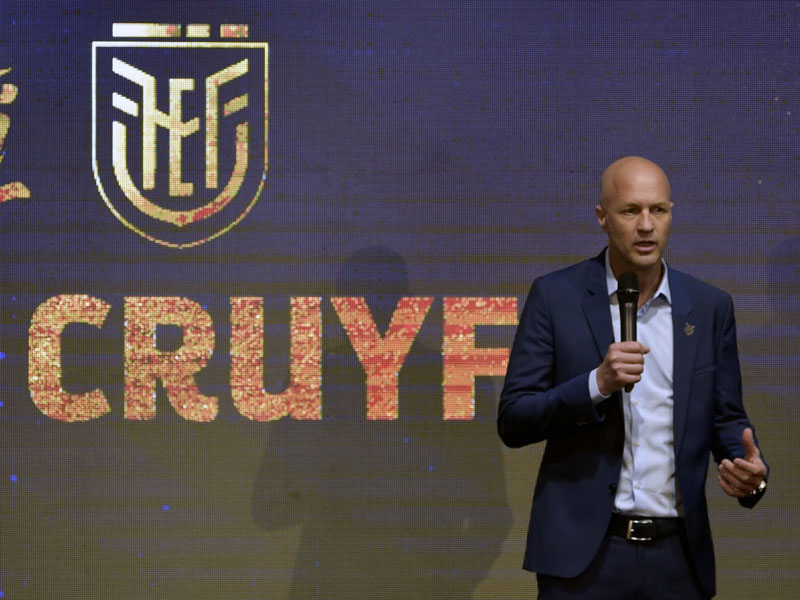Tim Vickery’s Notes from South America: Jordi Cruyff Thrown In At Deep End With Ecuador
The numbers do not lie. Since South America introduced its marathon, all against all format of World Cup qualification in 1996, Ecuador have picked up a total of 112 points at home, and just 36 away. The contrast is especially stark in the last two successful campaigns, those of 2006 and 2014, where the team made it to Germany and Brazil. In 2006 the points won home and away split was 23/5. In 2014 it was 22/3.
Underpinning this, of course, is the phenomenon of altitude. Ecuador play their home games at Quito, some 2,800 metres above sea level.
This may not present the difficulties of La Paz in Bolivia, around 800 metres higher. But – and the statistics surely bear this out – it is a cause of discomfort for the unacclimatised visitor. Some players feel the effects more than others, but the overall consequence is that the lack of oxygen in the air reduces the athletic capacity of the player. He cannot run as hard and as often. And then there is the effect on the ball, which, suffering less resistance, flies through the air quicker, giving extra potency to long shots and providing extra problems for goalkeepers. And problems, too, for coaches who are not used to the conditions – like Jordi Cruyff, the bold new choice to take charge of the Ecuador national team.
“It is one thing to read about the effects of altitude,” he said last week in Quito, after being presented on Monday night, “but you don’t really imagine how much of a difference it makes, and I’ve noted it over the last few days. Now I can understand the effects it has on a player who is not adapted to the conditions, and this is an important advantage that we have.”
It is a very revealing quote, one that makes it clear that Cruyff is diving into the deep end. The next version of South America’s fiercely competitive World Cup qualification campaign kicks off in just over two months. For all the glory of his name, Jordi Cruyff is a rookie coach, his experience restricted to quick spells in Israel and China. He now steps up to a level at which almost everything is unknown. Even he cannot know for sure if he is good enough. He will not know a great deal about the players at his disposal, or the opponents and, as we have seen, he is only now discovering the terrain of battle. Sun Tzu, author of the legendary ‘Art of War,’ would probably be skeptical about his chances of success.
[collection name=”small” accordion=”mobile” excerpt=8]
He does, though, have some interesting raw material to work with. True, Ecuador made a disastrous start to the continental Under-23 championships on Saturday, going down 3-0 to Chile. But there are some promising players in the squad, graduates of last year’s Under-20 side who won the South American title and went on to finish third in the World Cup at the level. And Jordi Cruyff has quickly been pleasantly surprised by the quality of Ecuadorian players, immediately seizing onto a defining characteristic. “They have great physical potential,” he said, “they are athletic and dynamic.”
Indeed, this has been a defining trait in Ecuadorian football, where for all their financial problems, the clubs have been punching above their weight in continental competitions. In the last 5 years, a total of six Ecuadorian clubs have made it out of the group phase of the Copa Libertadores, the continent’s Champions League. Only Brazil, Argentina and Paraguay can boast better.
And most of these sides have based their game, as have the national team at their best, on quick transitions to athletic wingers. Some of this has to do with the characteristics of the players, and some of it has to do with altitude, on the desire to stretch out the field and make the opponent cover as much ground and run as much as possible. This, of course, is a very different style of play from that which is so associated with the Cruyff name – and it is hard to see how Jordi would have landed the job if his surname was different.
But opportunity has come his way, and it will be fascinating to see what he does with it.
Don’t forget to follow World Soccer on Facebook and Twitter.







